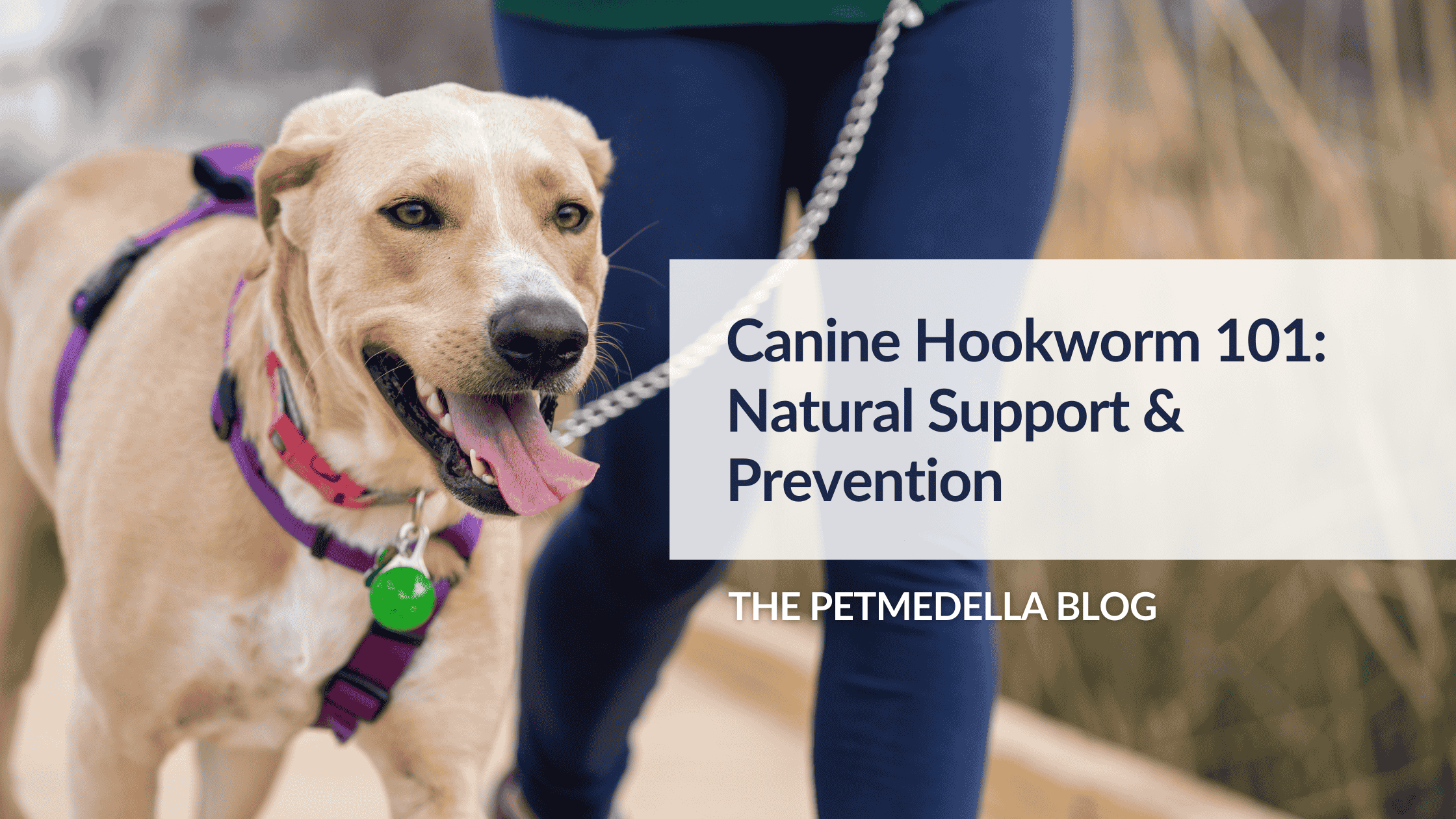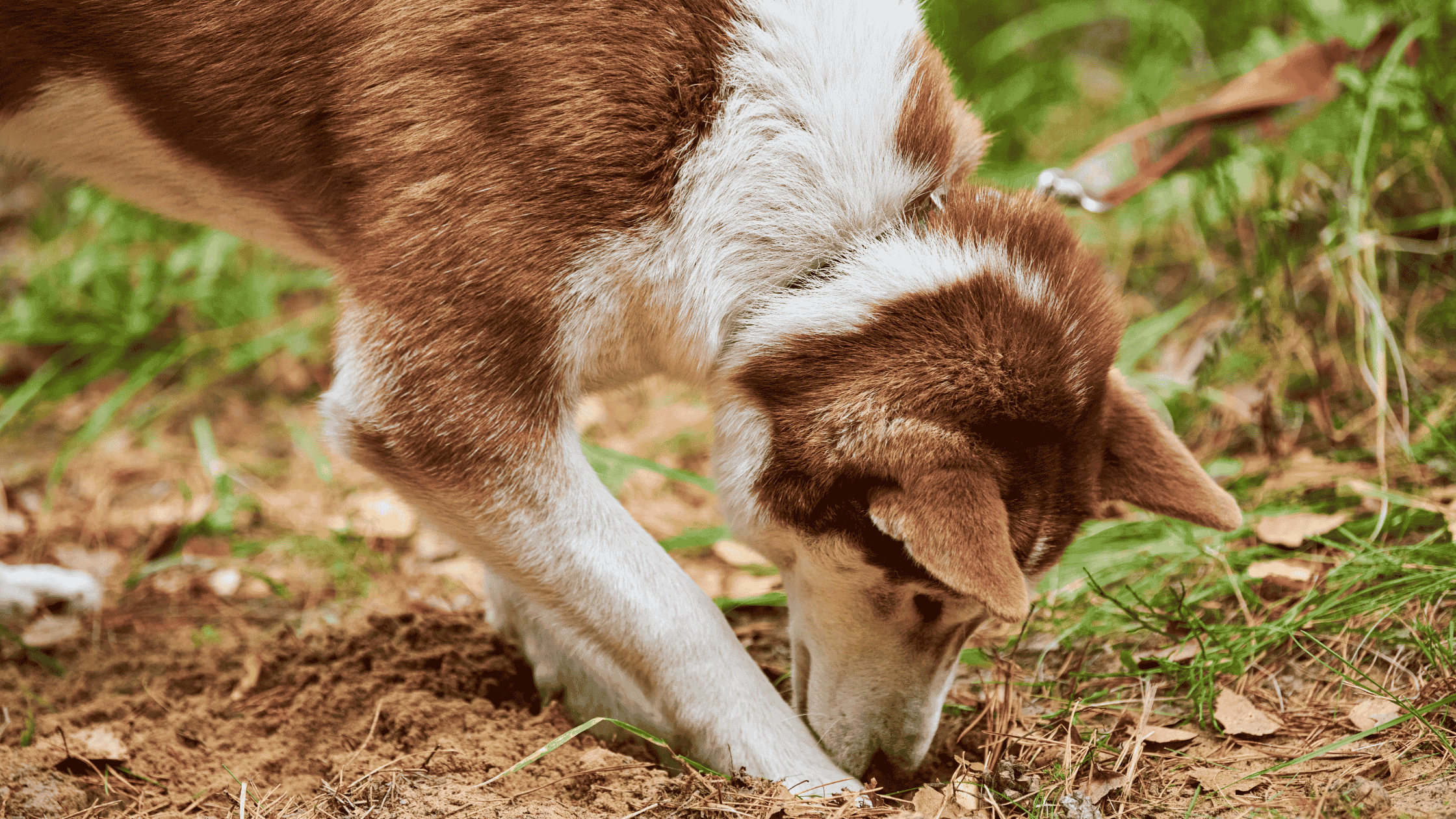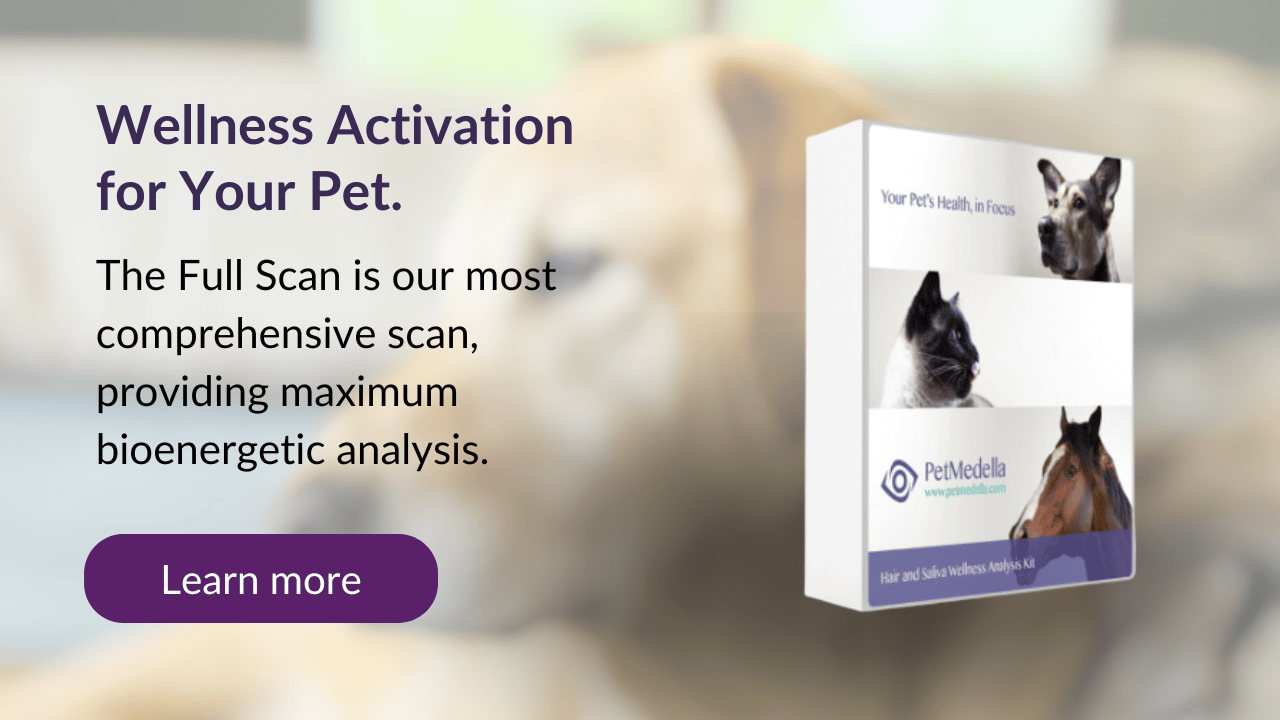
Let’s Learn About Canine Hookworm
Canine hookworm is one of the more common parasites dogs can pick up, especially if they spend time outdoors, at parks, or around other animals. While it’s not something anyone loves to think about, it’s a natural part of what many dogs may encounter in their environment.
Hookworms are tiny, thread-like parasites that live in a dog’s small intestine, where they latch onto the intestinal wall and feed on blood. They may be small (just a few millimeters long), but they’re incredibly efficient at making themselves at home, and that can lead to issues if left unchecked.
There are a few different species of hookworm that affect dogs, but the most common one in the U.S. is Ancylostoma caninum.
When you submit your pet’s hair and saliva samples for bioenergetic testing with a Full Scan, the samples are tested energetically for 350 resonating substances, including foods, environmental factors, toxins, and parasites, including hookworm.
Please note that PetMedella does not diagnose health conditions, but tests for bioenergetic resonance. If your pet is experiencing any medical concerns, we recommend consulting a licensed veterinary professional.

These parasites are often picked up when dogs come into contact with contaminated soil, usually by sniffing, licking, walking through, or even just lying in an area where hookworm larvae are present. Puppies can also get hookworms from their mothers through nursing or while still in the womb.
One thing that makes hookworms a bit sneaky is their ability to migrate through the body before settling in the gut. The larvae can enter through the skin, travel through the bloodstream, and pass through the lungs before they’re swallowed and reach the intestine. Once there, they attach themselves and begin feeding—and that’s when symptoms may start to show up.
Despite how common hookworms are, many dogs carry them with no major symptoms at first. In others, especially puppies or dogs with weaker immune systems, hookworms can cause digestive upset, nutrient loss, or fatigue.
What Hookworms Can Do to the Body
If your pup suddenly seems low-energy or isn’t finishing their meals like usual, it might not just be a picky mood. Hookworms can quietly sap nutrients and energy without making a dramatic entrance.
Hookworms mostly hang out in the gut, but they can affect more than just digestion. Here’s a look at how they may influence different systems in your pup’s body:
Digestive System
When hookworms settle in the gut, they may stir up digestive system issues like loose stools (sometimes with blood), tummy gurgling, or occasional appetite dips. Over time, this can lead to visible weight loss and general discomfort during mealtimes.
Blood System
Because hookworms feed on blood, they can lead to mild to moderate anemia. You may notice pale gums, lower stamina during walks, or signs of fatigue, especially in younger or smaller dogs.
Immune System
Chronic stress from parasites can wear down the immune response, making your dog a bit more vulnerable to other bugs or slower to heal from minor injuries.
What Nutrients Get Thrown Off With Hookworms?
Hookworms aren’t just freeloaders—they can steal nutrients your dog needs to feel their best. That’s why it’s common to see nutrient imbalances like:
- Iron, due to blood loss
- B vitamins, especially B12 and folate, which support energy and brain function
- Protein, which is key for strength and recovery
- Zinc, important for immune response and wound healing
- Electrolytes, especially if your dog has ongoing diarrhea or dehydration
This is why just getting rid of the parasite isn’t enough—we want to nourish the body after, too.
Finding Hookworms
Hookworms are usually detected through a stool sample. Your vet will look at your dog’s stool sample under a microscope to check for hookworm eggs—a process known as a fecal float test. This is a helpful starting point, but it’s not always foolproof. Eggs might not show up if the infection is very new, or if the parasites aren’t shedding at the time of testing.
How to Get Rid of Hookworm in Dogs
If your dog has confirmed hookworms, treatment usually involves a deworming medication (also called an anthelmintic). These are designed to kill the adult hookworms in the intestine.
Most of these medications are given orally and may need to be repeated after a couple of weeks to catch newly maturing worms. While these drugs are often effective, some dogs may experience side effects like digestive upset, so it’s always a good idea to support the body before, during, and after treatment, especially the liver and gut.
Holistic Support for Canine Hookworm
Depending on your treatment, your dog may benefit from additional support:
Certain herbs can naturally help the body expel parasites. Some commonly used include:
These are powerful, so it’s best to use them in a gentle formula created specifically for pets.
Once the parasites are addressed, give your pup some extra nourishment:
- Bone broth for minerals and gut repair
- Liver (cooked) for iron and vitamin A
- Pumpkin seeds (ground, in small amounts) may have natural anti-parasitic properties
- Probiotics to restore gut balance
- L-glutamine or slippery elm for intestinal lining support
To help your dog process the “die-off” and recover smoothly:
- Keep them hydrated
- Try milk thistle or dandelion root for liver support
- Gentle walks can help with lymph flow and energy
Even after parasites are cleared, some dogs may show signs of lingering fatigue, behavioral shifts, or recurring gut imbalances. That’s because parasites can stress the liver, gut, and immune system beyond just where they physically reside.
How to Prevent Hookworm in Dogs
Prevention can be easy once you know what to look for. Here are a few holistic ideas to keep hookworms out of your dog’s daily life:
Keep Outdoor Areas Clean
- Scoop poop daily to avoid reinfection.
- Try food-grade diatomaceous earth sprinkled in the yard to reduce larvae.
Strengthen the Body’s Defenses
A strong, well-fed pup is less inviting to parasites.
- Feed a balanced, whole-food diet.
- Limit fillers and sugars that can encourage parasites.
Routine Checks
- Run stool checks every 6–12 months (more often if your dog is social or travels)
- Consider bioenergetic testing to detect energetic stress from parasites, even when a stool sample doesn’t show them.
Natural Sprays
- Try a homemade or pet-safe essential oil spray with cedarwood, lavender, or lemongrass to help repel bugs and parasites before they find their way in.

Can Humans Get Hookworm from Dogs?
Yes, humans can get hookworms, but not in quite the same way dogs do. Most canine hookworms don’t grow to maturity in people, but the larvae can still cause mild issues if they come into contact with human skin.
This is called cutaneous larva migrans, and it happens when hookworm larvae in contaminated soil come into direct contact with bare skin (like walking barefoot in areas where dogs go to the bathroom). The larvae can burrow into the skin’s surface, causing red, itchy trails. It looks alarming, but usually resolves on its own or with topical treatment.
It’s not something you can catch by snuggling your pup or letting them sleep on the couch. Hookworms aren’t transmitted through fur or casual contact.
How to protect yourself:
- Always pick up pet waste promptly.
- Wash your hands after gardening or yardwork.
- Avoid walking barefoot in places where pets relieve themselves.
- Keep your dog on a regular parasite prevention plan.
With a few simple habits, you can keep both your family and your furry friends feeling safe and well.
Hookworms are common, but they don’t have to derail your dog’s health. With a mix of natural remedies, nutrient support, and good prevention habits, you can help your pup bounce back and stay well, inside and out. And if you’re curious about what’s really going on under the surface, bioenergetic testing can give you insights into stress on the digestive system, immune responses, and even parasites that aren’t showing up on traditional tests.


